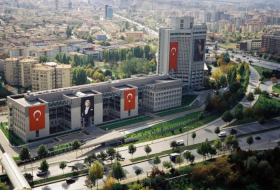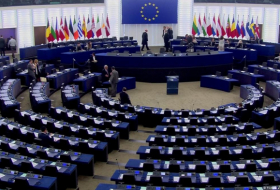Amid grim times, putting on your biggest smile may seem like the best coping mechanism. However, that approach could be harmful – but luckily, there’s another way through.
Over the last year, as the pandemic has morphed from terrifying to inconvenient to a long-term life-altering event, our coping mechanisms have had to adapt and evolve. Yet there have been differences in the ways we’ve approached time spent in isolation.
For some, positivity has been essential to coping with the crisis – many have relished a chance to slow down and reevaluate, felt grateful to still have a job or kept the good things in perspective (even while balancing virtual schooling, remote work and keeping the family safe). Of course, staying upbeat and expressing gratitude are hardly adverse practices, but this unrelenting optimism – known as ‘toxic positivity’ – paints negative emotions as a failure or weakness. Plus, there are few things more grating than encountering a toxic positivist when you’re grappling with grim reality.
And failing to acknowledge hardships can have a detrimental effect on our mental health. Persistent reminders to reflect on how good we have it’ in the midst of strife and struggle don’t make sadness, fear or anxiety dissipate, research shows. Instead, suppressing negative emotions can actually make us feel worse.
By contrast, another mindset approach boasts a more realistic framing. ‘Tragic optimism’ posits there are hope and meaning to be found in life while also acknowledging the existence of loss, pain and suffering. First defined by Austrian psychologist and Holocaust survivor Viktor Frankl in 1985, proponents of tragic optimism maintain there is space to experience both the good and the bad, and that we can grow from each.
Experts suggest that this kind of philosophy may be exactly what we need to cope with as we’re still trudging through the pandemic – and may help us once we’re on the other side, too.
Finding meaning amid chaos
Tragic optimism, says Emily Esfahani Smith, offers a perspective on adversity that helps people weather crises with more resilience and grow as a result of them. “It acknowledges the difficulties and the pain and the suffering of what's going on, and at the same time, the ability to maintain hope,” she says.
A cornerstone of the philosophy is the ability to find meaning and purpose amid challenges and setbacks. “Suffering is a part of life, and the question is how are you going to cope with it?” explains Esfahani Smith, author of The Power of Meaning. “A lot of people are going to deny or ignore their suffering, and a lot of other people are going to be completely overwhelmed by it.” To be tragically optimistic is a happy medium where instead of crushing our spirit, difficulties and challenges provide us with a learning moment, like re-framing the stress of giving a public speech as a challenge rather than a threat.
The realities of the pandemic can make finding the bright side a very difficult endeavour, which is why acknowledging the loss, pain and guilt of our situations is so beneficial. At the start of lockdowns in the UK last spring, Jessica Mead, a PhD student in the psychology department at Swansea University, sought to measure changes in wellbeing among residents. Naturally, wellbeing levels plummeted as a result of the pandemic, but Mead and her colleagues found participants who showed tragic optimism coped more effectively with the trauma of the pandemic.
Participants ranked how strongly they agreed with statements such as, “I have learned how to face and adapt to whatever life throws at me” and “I accept what cannot be changed in my life”. Those who most strongly identified with the statements were measured as exhibiting tragic optimism. People who had accepted that life comes with difficulties – and were prepared for them – coped with lockdowns more effectively than those who did not.
Mead also found that tragic optimists looked to things like their relationships with friends and family to find meaning. She points out that finding meaning in tough times is a deeper process than a short-term fix such as playing video games for a few hours to zone out. “Focusing on meaning might take a bit longer for people to develop that relationship with whatever does bring them meaning, but it will be so much more long-lasting,” she says.
From stress to growth
Our mindset may not only affect how we cope with the pandemic on a day-to-day basis but also how we emerge from it in the months to come.
Some who experience a traumatic event have difficulty coping and may develop post-traumatic stress disorder (PTSD) – a major concern for many mental-health professionals as we anticipate the end of the pandemic. This can be the case for many who depend on toxic positivity; encouraging people to be optimistic and grateful when they may be going through very tough times doesn't encourage growth on the other side of tragedy, says Mead. And while positivity can, in the right amounts, have benefits, taken to extremes it can also leave people feeling guilt, shame or in denial about their real feelings.
In contrast, however, others find trauma gives them a new lease on life, an altered perspective known as post-traumatic growth. Tragic optimism helps facilitate this: by accepting and sitting with the distressing feelings the pandemic has foisted upon us, we can use them as fodder for personal development.
Paul Wong, a psychologist and professor emeritus of Trent University in Ontario, says the road to this transformation may be uncomfortable because life currently isn’t easy. “It’s OK to be lonely,” he says. “It’s OK to feel bad, it's OK to feel anxious. Welcome to the human club.”
But instead of letting these negative feelings overwhelm us – or ignoring them completely, as is par for the course in toxic positivity – embracing tragic optimism means making a daily effort to feel comfortable with loneliness or anxiety. In these moments, we may learn we enjoy solitude, that we highly value community or discover who we want to be on the other side of the pandemic.
So, although it may feel tempting just to grin and bear it, taking the slightly more uncomfortable route of a tragic optimist may actually help us see that there’s a light at the end of the tunnel – and help us take a breath as we wait to reach it.
More about:
















































